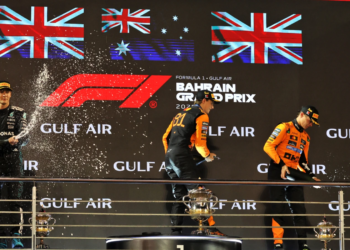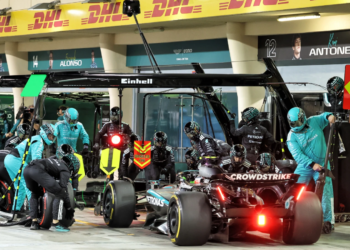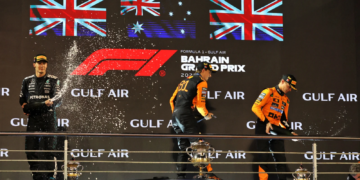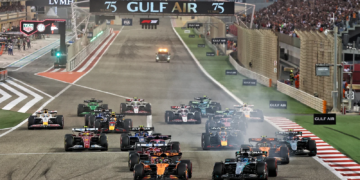Alpine has announced that Renault will cease work on developing an engine for the 2026 Formula 1 regulations amid the expectation it will revert to a customer team.
Following speculation earlier this term, Alpine has revealed that the decision has been made for Renault to abandon plans regarding F1’s next-generation power units.
Renault has supplied Alpine with engines since the Anglo-French outfit’s return to F1 as a works entrant in 2016, but it has been unable to compete with rival marques.
A freeze on engine development since 2022 has hampered Alpine as an underpowered powertrain has contributed to the team’s regression to ninth place this season.
The Enstone-based squad is touted to be in discussions with Mercedes over a deal which will see Alpine use the German marque’s engines from the next rule change.
Renault employees had appealed against the rumoured action and urged Renault CEO Luca De Meo to reverse its impending decision as it staged a protest at Monza.
However, it has been published that Renault’s engine base at Viry-Chatillon will be transformed into an engineering centre to develop technologies for the wider brand.
This will cover Alpine’s new Supercar, research and development on electric motor and battery technologies and Alpine’s World Endurance Championship programme.

“Following the consultation process and dialogue with the employee representatives at Viry-Châtillon, Alpine has decided to establish an F1 monitoring unit,” it said.
“This unit will aim to maintain employees’ knowledge and skills in this sport and remain at the forefront of innovation for Hypertech Alpine’s various projects.”
But Alpine has clarified that Renault will continue to be the team’s power unit supplier into next season, the final campaign under the current ground effect regulations.
“Formula 1 activities at Viry, excluding the development of a new engine, will continue until the end of the 2025 season,” Alpine added.
Renault’s departure will bring the curtain down on an extensive spell in the sport which has seen it power teams to 11 Drivers’ and 12 Constructors’ Championships.









